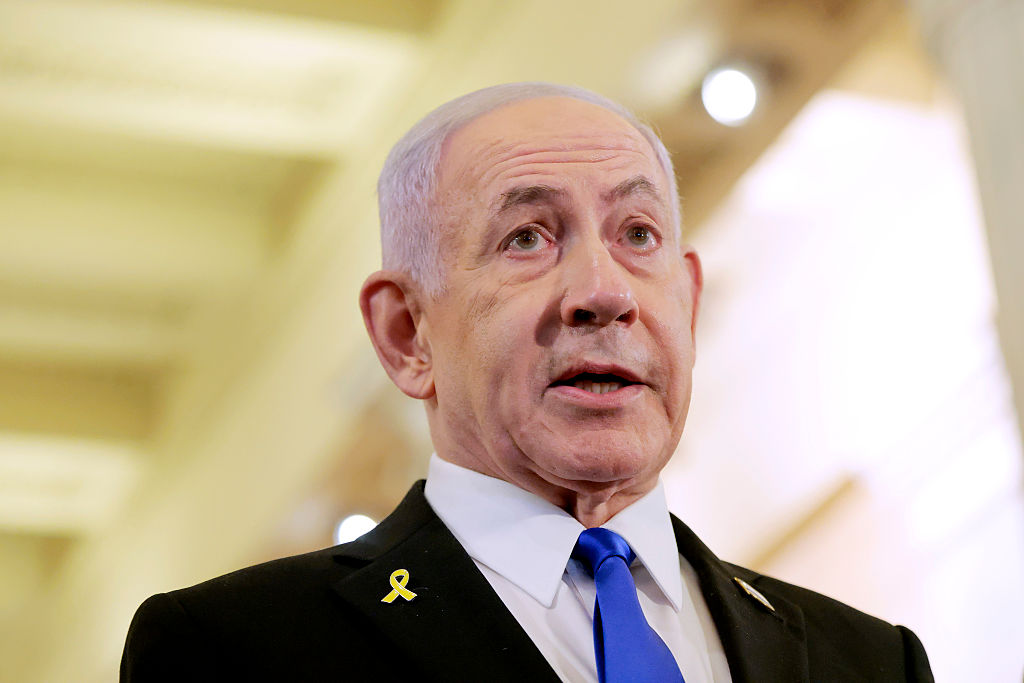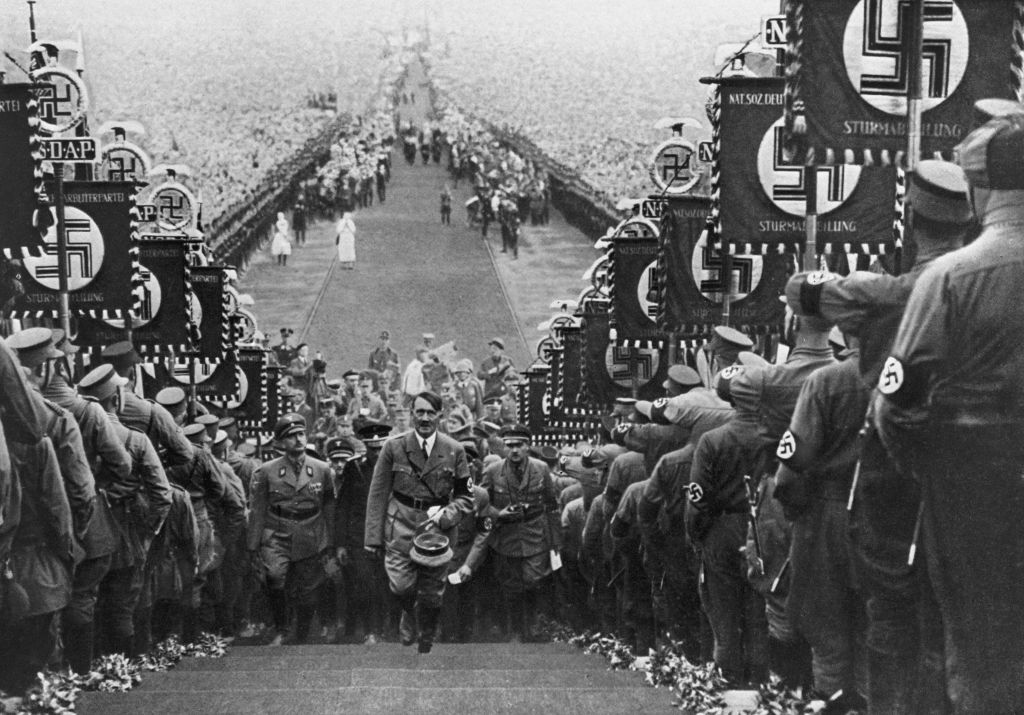Over his last decade in power, Benjamin Netanyahu has easily seen off all challengers. The Labour Party has gone through four leaders during this period, whose main achievement has been to transform the party which founded Israel 70 years ago in to an irrelevant relic. ‘Centrist’ leaders who tried to enter the vacuum left by Labour had their brief moments but failed to threaten Netanyahu’s primacy.
Netanyahu has had three key elements working for him. His own personal standing as ‘Mr Security,’ Israel’s only remaining responsible grown-up, with the experience of navigating the country through treacherous geopolitical waters. The base of his Likud party which has held together, despite the growing national fatigue from his overbearing presence. And the fragmentation of the center-left opposition in to a series of inconsequential splinter-parties.
Since his third consecutive election victory in 2015, the consensus on the Israeli political scene has been that ‘only Bibi can take Bibi down.’ His political downfall would come, not through the ballot-box, but from a series of corruption investigations, that are very slowly grinding to their culmination in the shape of indictments of bribery and fraud. In recent weeks however, a new challenger has emerged.
Benny Gantz, a six-foot-five former general has sky-rocketed in the polls, a mere month after launching his new Israel Resilience Party and after giving just one, carefully-scripted and choreographed campaign speech last month. The 59 year-old Gantz who retired in 2015 after 38 years of military service, including four in the high-profile position of Chief of Staff of the Israel Defense Force, has yet to present any detailed policies or ideology. His election strategy was described by one of his campaign strategists as ‘minimalism.’ Since he decided to take the plunge in to politics, he has not given any interviews and the 30-minute speech was heavy on cliches and paeans to public service and national unity, but non-committal on actual politics. The party’s slogan is ‘there is no long right or left, just Israel before anything.’
That was enough to propel the new party in to second-place, with as much as 20 percent of the vote in one of the polls. Netanyahu’s Likud is still stable on around 25 percent, but there was worse news in the leading candidates’ personal ratings. For the first time in a decade, a challenger is level-pegging Netanyahu in the suitability for prime minister question.
Israelis love their generals. In a country where most young people serve in the military for two or three years, and many continue serving as officers and reservists, the army is consistently ranked in surveys the most respected of all national institutions. But Gantz, a paratrooper who enjoyed a rapid rise though the ranks of combat command, was widely seen by his fellow officers as lacking the burning ambition needed to make it to the very top. He was appointed Chief of Staff by default, only after more prominent candidates were tainted by scandal.
‘I doubt he has what it takes to succeed in politics,’ says a veteran Israeli general who served for years under Gantz. ‘He’s too laid-back and consensual. He’s great as a team-player, listens to everyone and can be infuriatingly slow at making difficult decisions. He’s competent and clever and his superiors loved him, which his why he constantly got promoted, but he never left much of a mark in any of his positions.’ But the general won’t say any of this on-record. ‘I don’t think he’s a great candidate, but I want someone to beat Netanyahu and maybe he has a chance. So why should I sabotage that chance?’
Speaking with a series of former officers who knew Gantz at various levels, one hears very similar sentiments. Gantz is a nice guy, who doesn’t make enemies, which has helped construct a teflon personality to which the occasional operational failure failed to stick throughout his career. He was fortunate in his patrons and timing to get as high as he went up the greasy pole, and that is what is working in his favor in these elections. ‘We have an opportunity in these elections to deny Netanyahu his Mr Security image,’ says one general who is backing Gantz. ‘Benny may not have been the most obvious of candidates, but he has a window of opportunity now.’ The campaign is unstinting in its efforts to highlight his military credentials, including a logo with khaki colors and video-clips of the devastation unleashed on Gaza in military operation when he was the army’s chief.
Benny Gantz is not one of the most ambitious or brilliant or ruthless generals to come out of Israel’s army, but he is one of the most representative. He looks the part, with his patrician bearing and deep voice, which made him one of the officers the army’s spokesperson unit loved putting before cameras. He is the standard-bearer of Israel’s establishment which may have never carried out a coup or blatantly defied the orders of its elected political masters, but has seen itself as the guardian of Israel’s moral values. This establishment sees Netanyahu as being too extreme, divisive and corrupt and now it is silently backing one of its own to beat him. Just as it did during Netanyahu’s first term, when it backed Ehud Barak, another former general, who deposed Netanyahu in 1999.
The center-left Labour Party which dominated Israel for half of its existence has crumbled. In the 1990s, it put all its political capital on reaching a historical compromise with the Palestinians, which it believed would lead to peace, security and prosperity. That compromise failed. Netanyahu proved in a decade of continuous economic growth, and relative calm, at least for the region in which Israel is situated, that Israel doesn’t necessarily have to end its military occupation of millions of Palestinians, to realize its aspirations. Labour and the rest of the opposition have failed to articulate an alternative strategy.
Gantz is from a family of Labour activists, but despite its leaders’ hopes he would join the party, and help revive its fortunes, he preferred to set up his own overnight party, which like Emmanuel Macron’s En Marche in France, would not be tainted by the old political structure. While many of his campaign advisors have worked in the past with center-left parties, the stars he has so far brought to his candidates’ list are prominent former Likudniks, who fell out it with Netanyahu. They are there to help him attract right-wing voters.
The polls show a majority of Israelis are tired of Netanyahu and would like to see the back of him. On everything else they remain bitterly divided. A fact that has so far enabled Netanyahu to keep his unhappy coalition of underdogs and minorities in power. Gantz lacks Netanyahu’s charisma, his burning sense of destiny and deeply-held nationalist ideology. But in these elections, with Netanyahu facing indictments and the public suffering from Bibi-fatigue, the image of a silent and dependable general may be what a challenger needs to finally beat him.

























